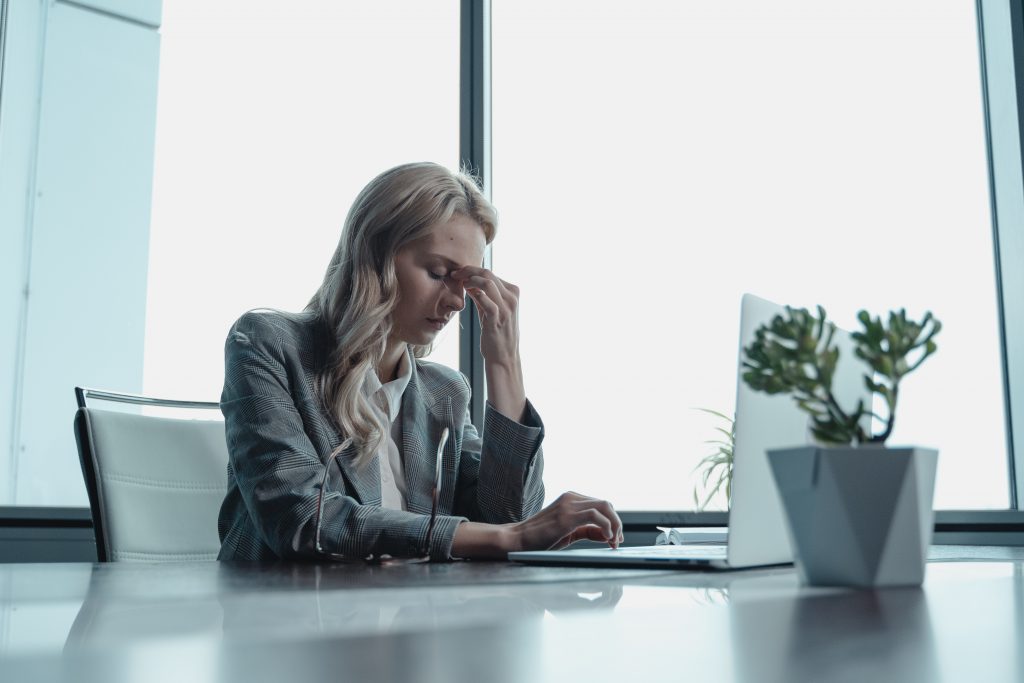The past year, namely 2020, has been challenging for people, on some level or other. Contextually, the global pandemic has brought with it not just stress, but all sorts of other issues. Getting used to a new and confined way to live, leaves some in pain, while others celebrate the chance to stay home. All this adjustment, plus the fear of disease and illness, is enough to make stress hit the roof. Anxiety is the body’s natural reaction to things stressful. It stems from an apprehension of things unknown.
When to be Concerned
If feelings of anxiety are extremely strong, persisting for six months or more, then managing anxiety becomes the need of the hour. Anxiety that interferes with daily living is called anxiety disorder.
In anxiety disorder, feelings of anxiety are more or less permanent and can be quite debilitating. Intense as these feelings are, they stop you from doing things you may enjoy, and certain triggers may spark of stress. These may include entering an elevator or crossing the street. Affecting any and all age groups, situations in life may be triggering, like a pandemic, for instance. If you already suffered from anxiety issues before, the pandemic may have enhanced it.
Symptoms
Depending on the person experiencing it, anxious feelings are varied. Feelings that range from butterflies in your tummy to gut-wrenching feelings may exist. Some people experience a racing heart. Anxiety can make a person feel out of control.
How to Handle Anxiety
Managing anxiety isn’t difficult, but it needs work. For some people, medical treatment isn’t necessary. People can be treated by lifestyle changes, such as incorporating physical exercise routines or doing yoga. You can cope with anxiety by means of the following methods, depending on the extent of your symptoms:
1. Exercise – Psychiatrists at the Harvard School of Medicine advise that one of the best non-medical ways to alleviate anxiety is any form of cardiovascular/aerobic exercise, such as cycling, dancing, or walking. Exercise diverts the mind from stressful thoughts and decreases muscle tension. When your heart rate increases through exercise, chemicals in your brain (serotonin and GABA) are released. These reduce anxious feelings.
2. Medication – Anti-anxiety medication in the form of beta-blockers are prescribed to curb the physical symptoms of anxiety. The effects of norepinephrine, a stress-inducing hormone causing rapid heart rate, trembling and sweaty palms, are blocked by beta-blockers.
3. Journaling – When you write down your thoughts, you can work through them in a physical way. Penning down your anxious feelings may make you objectively examine what caused them and how to cope.
4. Therapy – Psychotherapy results in patients learning to understand how their (irrational) thoughts may lead to anxious feelings. The psychotherapist teaches patients to change patterns of thought so anxiety feelings can reduce in intensity and frequency.
5. Sleeping – The Center for Human Sleep at UC, Berkeley, revealed that deep sleep regulates emotions and lowers emotional reactivity. This prevents the escalation of an anxious mood. Often, anxiety patients are prescribed sedatives to promote peaceful sleep. Home remedies like certain breathing techniques help. Simple deep breathing can alleviate stress symptoms. Avoiding rich foods, caffeine and alcohol helps too. In moderate to severe cases, one of two treatment lines may be followed – medication or psychotherapy. Meeting a therapist is necessary, first for a definite diagnosis, and then to explore treatment options best suited to individual cases. Medication used in the treatment of anxiety includes the prescribing of anti-depressants and sedatives. Taken to balance brain chemistry, they prevent anxiety and curb symptoms that may be severe.

